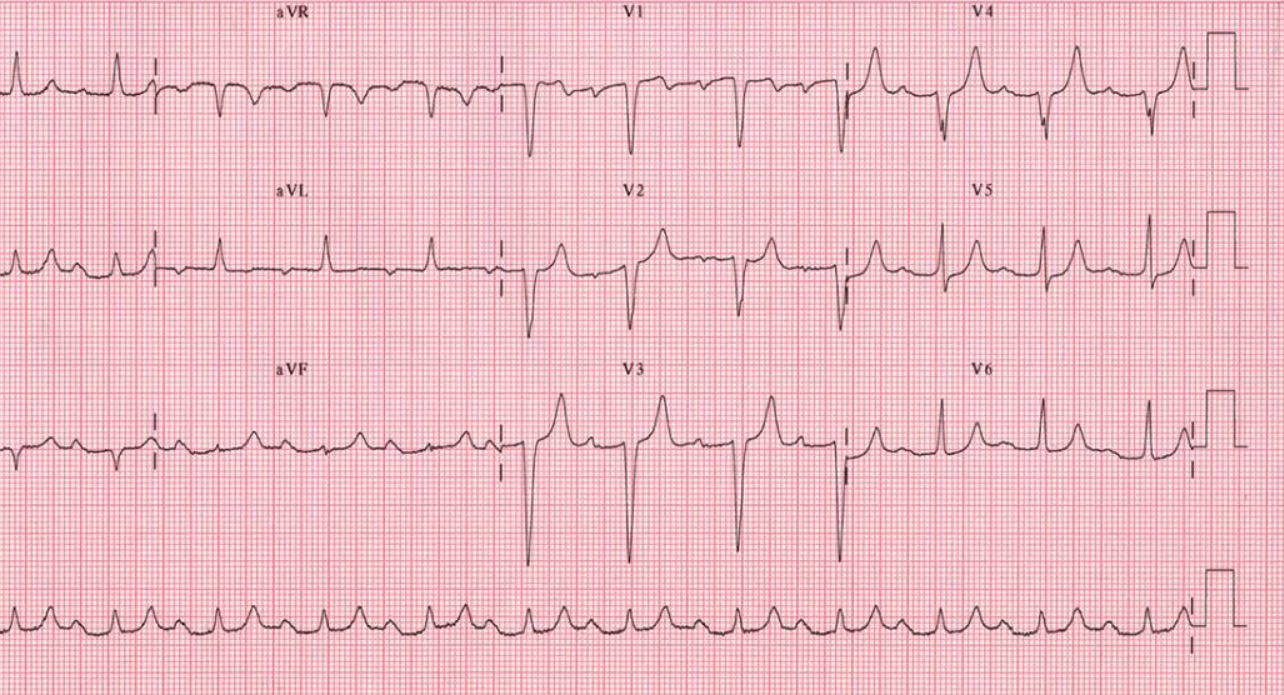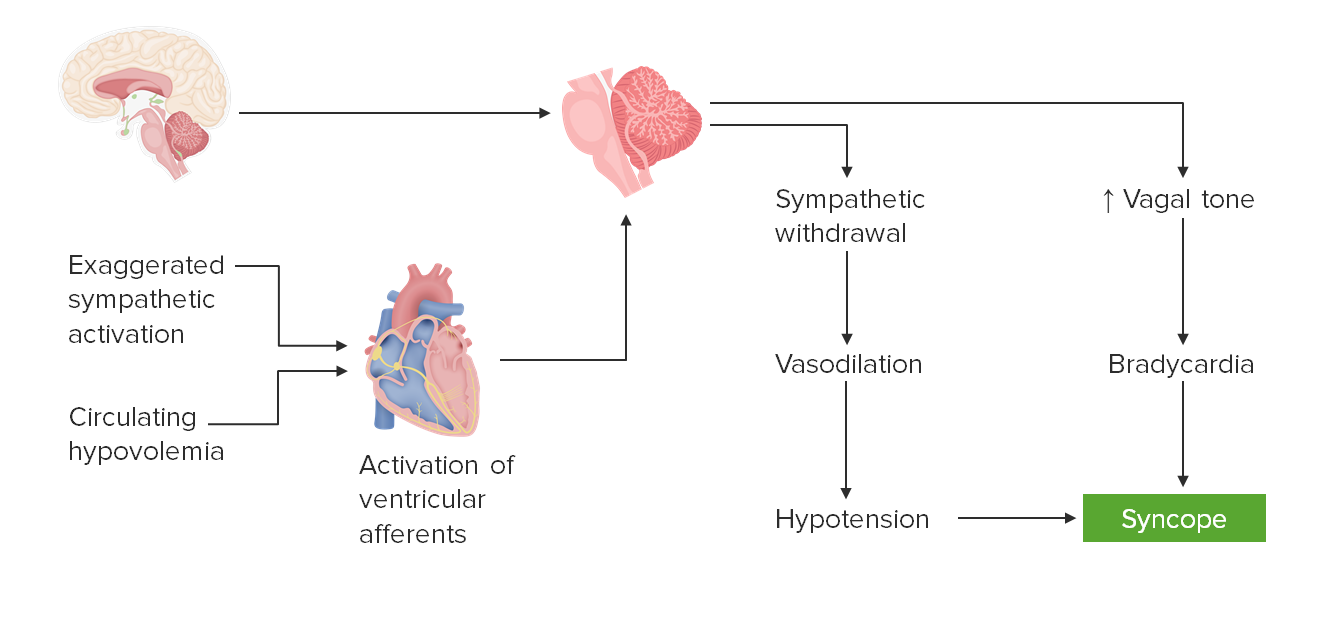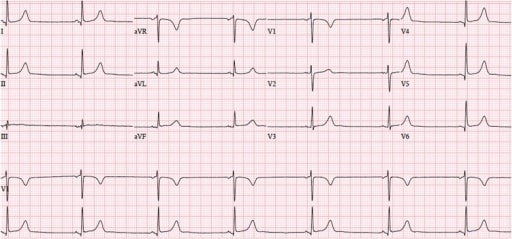Playlist
Show Playlist
Hide Playlist
ECG Case: 88-year-old Man with Syncope
-
Slides Heart Blocks.pdf
-
Download Lecture Overview
00:01 Let's look at a case of an example of a patient who has -- is having some heart block. 00:05 So, here's the history: we see an 88-year-old man. He suddenly faints while eating dinner. 00:11 He's immediately attended by a nearby nurse, ambulance comes and gets him, brings him to the hospital where his blood pressure is 88/40 mmHg quite low, and his heart rate is 36/min, also quite low. 00:22 One of the critical factors here in this case, first of all, is a syncope episode. 00:26 He faints. Secondly, he's hypotensive. Third, he's bradycardic, very slow. 00:32 So here's the ECG. Think about this and make -- come up with a diagnosis. 00:45 If you came up with a diagnosis of complete heart block, you would be right. 00:50 How would we know that? Markedly slow heart rate, a wide QRS because of the subsidiary slow pacemaker in the ventricle, no regular relationship between the P waves and the QRSs. 01:02 If you plot that out, you'll see the P waves are occurring at a faster rate than the ventricle and they're occurring randomly in relationship to the QRS. 01:12 So, the diagnosis: complete or third-degree heart block. 01:17 Treatment is a permanent pacemaker restoring the normal heart rate, restoring the normal blood pressure, and people go on and live many years with the permanent pacemakers. 01:28 Thanks very much for being with me for this lecture. Please stay tuned for the next one.
About the Lecture
The lecture ECG Case: 88-year-old Man with Syncope by Joseph Alpert, MD is from the course Electrocardiogram (ECG) Interpretation.
Included Quiz Questions
Which ECG changes are indicative of third-degree heart block?
- No regular relationship between the P waves and QRS complexes
- Progressively longer PR interval with intermittent dropped beats
- Bradycardia with dropped beats that are not preceded by changes in the length of the PR interval
- Consistent PR interval of > 200 ms
- Abnormally slow accessory conduction pathway from the atria to ventricles
Customer reviews
5,0 of 5 stars
| 5 Stars |
|
1 |
| 4 Stars |
|
0 |
| 3 Stars |
|
0 |
| 2 Stars |
|
0 |
| 1 Star |
|
0 |
Dr. Joseph Alpert explains clearly what us, students, always miss by ourselves. Really great series of lectures!!!






